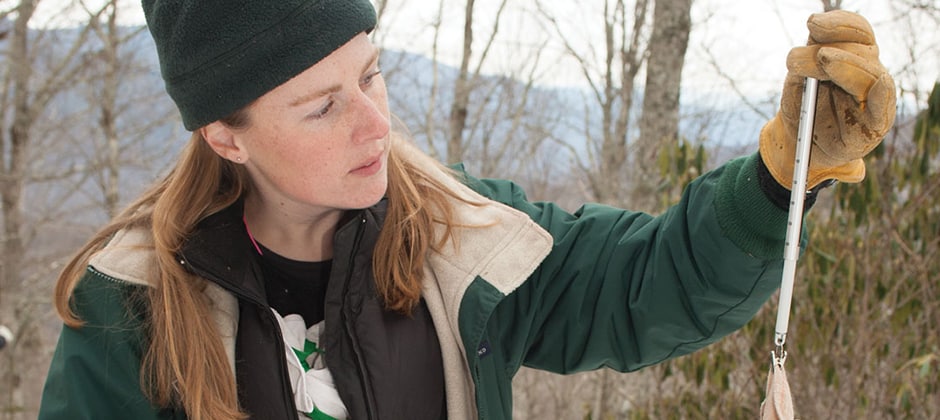Share this article
Students favor a range of conservation funding options
If college students were in charge of conservation policy, they’d be open to a wide range of options, from federal dollars coming from natural resource extraction to state sources, like lottery funds and sales taxes.
That’s important, said TWS member Lincoln Larson, an associate professor of parks, recreation and tourism management at North Carolina State University, because today’s students may well be tomorrow’s policymakers.
“These are going to be the leaders of the future,” said Larson, lead author of a study published in Conservation Science and Practice that surveyed student attitudes on conservation funding at public universities across the country. “What on earth do they think about the future of conservation funding? Where do they think we should go? What do they think we should try?”
Larson and his team surveyed 17,203 undergraduate students at universities in 22 states from 2018 to 2020. They asked students to rate their level of support for nine potential funding sources for wildlife conservation. The students showed strong or very strong support for eight of the nine strategies. Eighty percent of students supported using revenue from natural resource extraction. Seventy-one percent supported revenue from outfitters. Other strategies attracting widespread support included state lottery proceeds (77% of students), state sales taxes (71%), and state and local bonds (72%).
The topic is critical, Larson said, as participation in hunting and fishing wanes, resulting in less conservation funding coming from these traditional funding sources. Until the COVID-19 pandemic brought an uptick in outdoor activities as people sought an escape from lockdown orders, hunter numbers have fallen about 30% since the 1980s. License sales, as well as excise taxes on firearms and fishing equipment, are responsible for about 60 to 80% of state fish and wildlife agency funding.
“Hunting and angling have been a staple for conservation for so long and will continue to be, but we also have to look elsewhere to diversify this larger funding portfolio,” Larson said.
Hunting and fishing license sales still proved the most popular option for students, with support from 83% of individuals surveyed. Excise taxes on hunting and fishing equipment drew support from 61% of students.
The only option that drew support from fewer than half the students—43%—was an excise tax on outdoor recreation equipment, like backpacks, tents and binoculars. That’s not surprising, Larson said, since that would mean many students would be taxing themselves at a stage when their income is limited. But even that option had substantial support.
“I think all of us were pretty excited to see overwhelmingly strong support for all these different funding options,” he said. “Younger generations across the U.S. appear poised and eager to support innovative funding alternatives for conservation if policy makers choose to pursue these strategies.”
Header Image: North Carolina wildlife biologist Chris Kelly works to conserve species of greatest conservation need in the state. Conservation work has relied on funding from hunters and anglers, but college students are open to a wide range of funding options. Credit: North Carolina Wildlife Resources Commission








